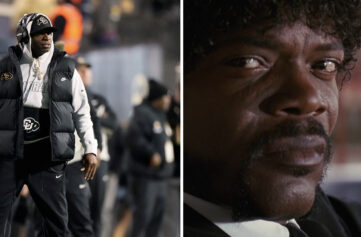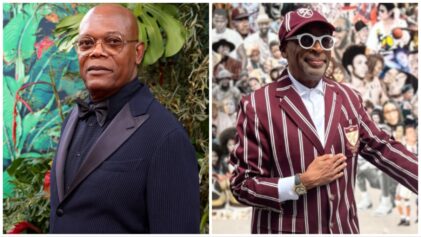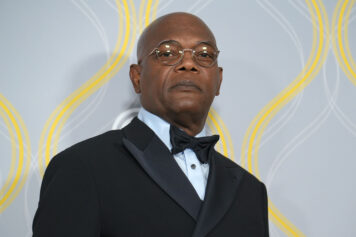Samuel L. Jackson has clarified his statements after he was criticized for seeming to take issue with Black British actors in American roles.
The BAFTA winner indicated that an American actor would have been a better fit for Daniel Kaluuya’s lead role in the satirical thriller “Get Out,” which follows a Black man as he meets his white girlfriend’s family for a weekend that quickly turns horrific.
“There are a lot of Black British actors in these movies,” Jackson said Monday, March 6, on New York’s Hot 97 radio station. “I tend to wonder what that movie would have been with an American brother who really feels that. Daniel grew up in a country where they’ve been interracial dating for a hundred years. What would a brother from America have made of that role? Some things are universal, but [not everything].”
Jackson clarified his comments two days later, saying he wasn’t bashing British actors but the movie industry that casts them in Black American roles.
“It was not a slam against them, but it was just a comment about how Hollywood works in an interesting sort of way sometimes,” Jackson told the Associated Press at the “Kong: Skull Island” premiere Wednesday, March 8. “We’re not afforded that same luxury, but that’s fine. We have plenty of opportunities to work. I enjoy [British actors’ work]. I enjoy working with them when I have the opportunity to do that.”
“I enjoy [British actors’ work]. I enjoy working with them when I have the opportunity to do that.”
The 68-year-old’s original statements were met with swift backlash, namely from “Star Wars” actor John Boyega, who is British.
Black brits vs African American. A stupid ass conflict we don't have time for.
— John Boyega (@JohnBoyega) March 8, 2017
But some actors agreed with Jackson’s initial stance about the “Get Out” casting.
“For American actors, [the Black American experience is] already inately in us,” American actor Devere Rogers, who appeared in “Grey’s Anatomy,” told The Guardian. “Especially with things like police brutality, how Blacks are treated in America. That’s something we have to live with every day.”
Rogers also compared British stars getting American roles sometimes feeling like “a slap in the face to the Black community.”
Actress Dominique Toney, who also is American, said the need to work sometimes leads Black actors to take stereotypical roles, which can lead casting directors to put Brits in serious roles as their U.S. counterparts struggle to break free from typecasting.
“We do roles that probably pigeonhole us a little bit,” she said. “There are some tropes that we’ve seen throughout cinematic history with regards to Black actors. … Once you get into that pigeonhole, it’s hard to get out of it.”
Stacy Amma Osei-Kuffour didn’t take issue with U.K. stars getting U.S. gigs, although she noted sometimes she felt like “there is an authenticity missing” with certain actors.
“When I see David Oyelowo in an American movie, I’m just happy Black people are being represented,” she said.


